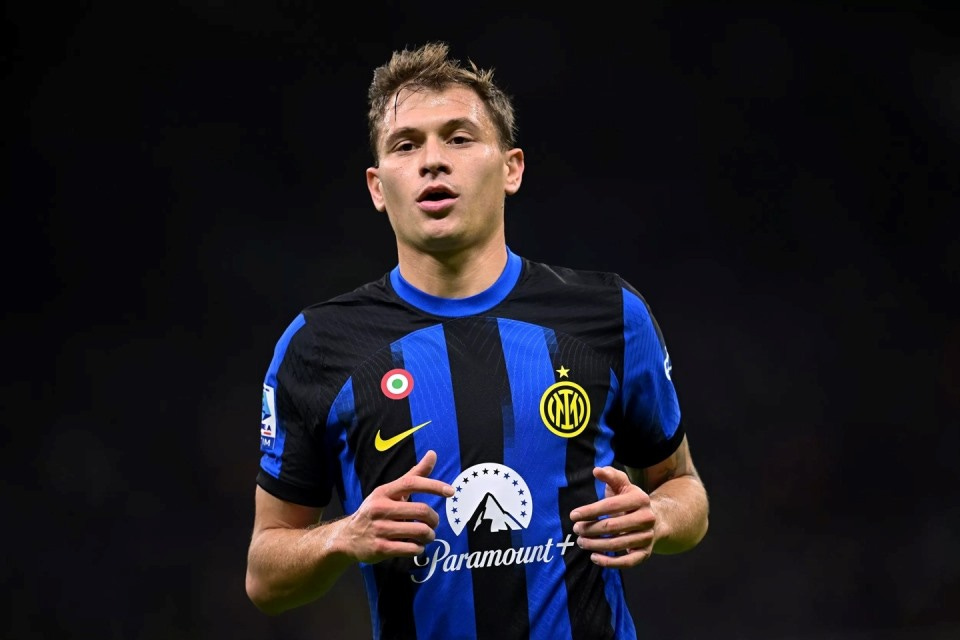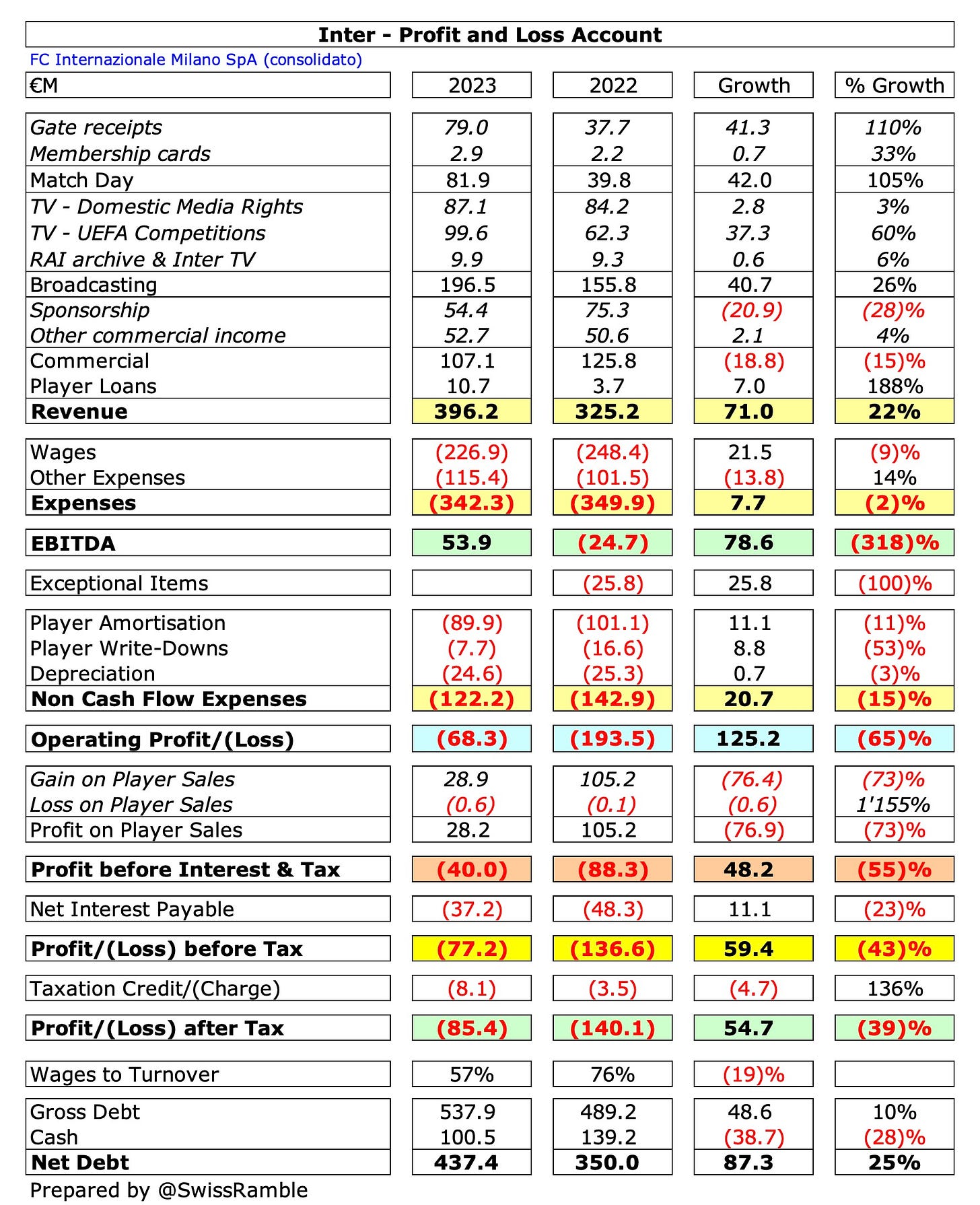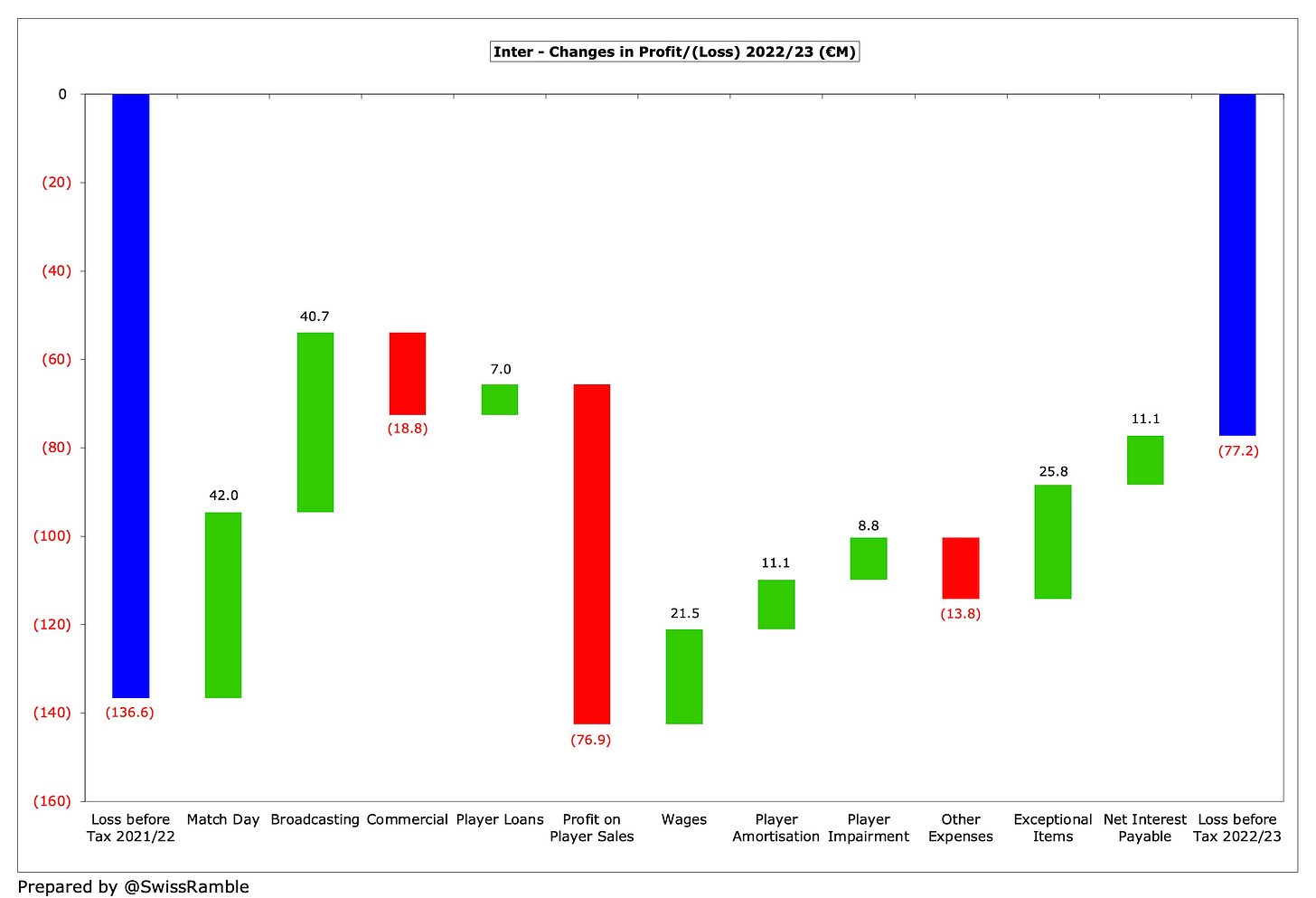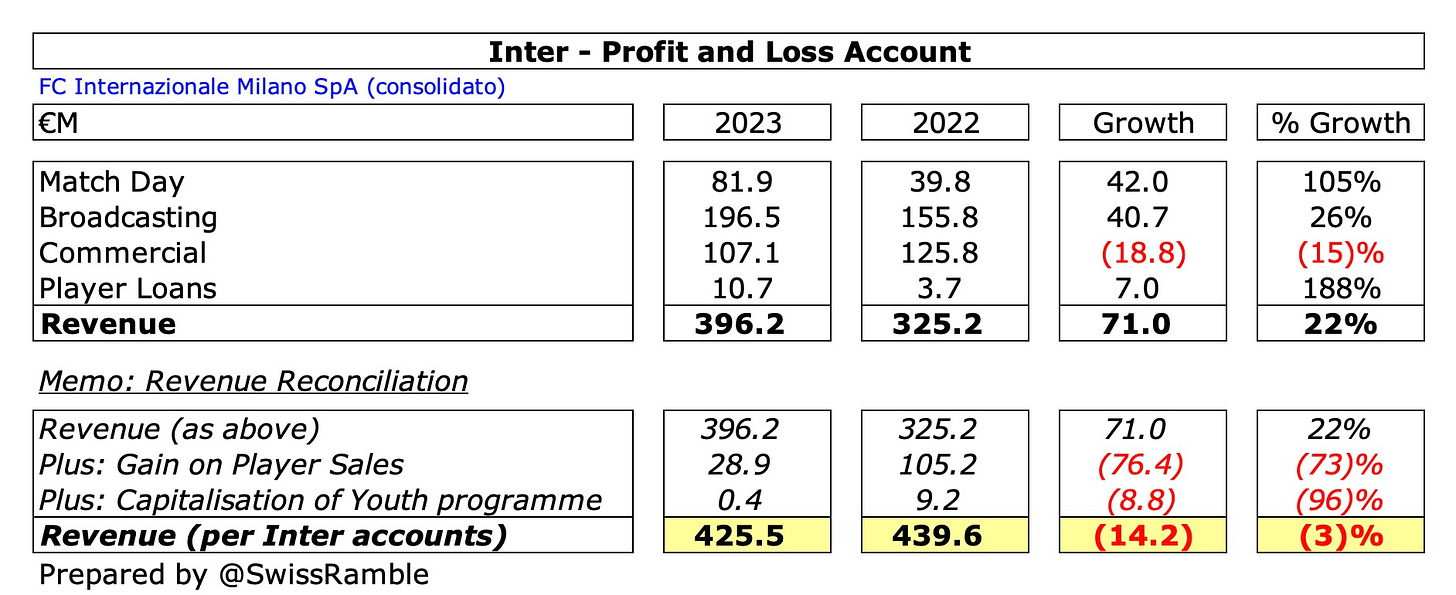Inter’s 2022/23 accounts cover a season when they won the Coppa Italia and the Supercoppa Italiana, both for the second season running, and finished third in Serie A under head coach Simone Inzaghi.
However the highlight was the team’s amazingEuropean campaign, which culminated in the Nerazzurri reaching the Champions League, where they were narrowly defeated by Manchester City.
This was a great achievement, which was underlined by Steven Zhang, who proclaimed, “Inter are back at the top, starring on the most prestigious stage in the world.” The chairman was understandably proud, but what exactly did this mean for Inter’s finances?
Profit/(Loss) 2022/23
Inter’s pre-tax loss has significantly fallen from €137m to €77m, thanks to what the club described as “financial rebalancing”. This referred to a combination of increasing revenue, which rose €71m (22%) from €325m to €396m, and reducing costs, which were cut by €54m (10%).
The improvement was further boosted by net interest payable dropping by €11m (23%) from €48m to €37m, though it’s worth noting that this is still a huge annual interest burden, which has effectively doubled Inter’s loss from €40m to €77m.
So the club took many steps in the right direction, which were more than enough to offset the substantial €77m decrease in profit on player sales from €105m to €28m.
Loss after tax also reduced from €140m to €85m after booking an €8m tax charge.
Success on the pitch contributed to revenue growth in both match day, which more than doubled from €40m to a new Italian record of €82m, and broadcasting, up €41m (26%) from €156m to €197m. Player loans and other income from player management nearly tripled from €4m to €11m.
However, commercial fell €19m (15%) from €126m to €107m, mainly due to non-payment of the shirt sponsorship.
As a technical aside, this international definition of Inter’s €396m revenue is different to the one used in the club accounts, which also includes the €29m gain on player sales plus €0.4m capitalisation of youth programmes.
That gives a total revenue of €426m, which is €14m (3%) lower than prior year’s €440m, mainly due to the sharp reduction in player sales.
Inter significantly reduced their staff costs with action taken in the transfer window of summer 2022 cutting the wage bill by €21m (9%) from €248m to €227m. In addition, player amortisation dropped by €11m (11%) from €101m to €90m, while player write-downs more than halved from €17m to €8m.
On the other hand, other expenses grew €13m (14%) from €102m to €115m, though depreciation slightly fell to €25m.






